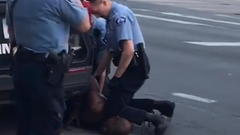Personal Reflections on Race, Responsibility and the Jewish Community
06/15/2020 08:01:11 AM
Sometimes the Torah seems archaic and irrelevant. And then there are moments when the ancient text leaps across the 3,500-year divide as if the words were written for this very moment. That’s how I felt when I read this passage from last week’s portion:
Miriam and Aaron spoke against Moses because of the Cushite woman he had married: “He married a Cushite woman!” (Numbers 12:1)
For this accusation, Miriam is temporarily afflicted with Leprosy. Aaron is spared any punishment; so much for the patriarchy and fairness! But who is “the Cushite woman” Moses marries and why are Aaron and Miriam upset?
We can’t know for sure, and it’s a topic of controversy among the commentators, but many believe that “the Cushite woman” is Tzipora, whom you may recall, Moses marries in the book of Exodus. Tzipora was the daughter of the Midianite priest Jethro, and there lies the problem; she was not an Israelite. In addition, many believe she was dark skinned, a woman of color. In other words, Miriam and Aaron seem to be prejudiced, bigoted racists towards her. Ouch!
Maybe we feel better that at least Miriam was punished for her remarks. Maybe. For me, this text is a stark reminder that racism has been a part of the human condition for far too long.
It also shines a light on my own relationship with race and the prevailing notion that the Jewish community was and is on the right side of history when it comes to racism in America.
 I was born in Chicago in 1962 and moved to Louisville, Kentucky, when I was three years old. We lived in a bucolic, affluent neighborhood less than a mile from the banks of the Ohio River and about ten miles outside the city. We had a small house relative to the neighbors. Big, multi-acre yards, rolling hills, mature oaks and maples, large, stately homes. And exclusively white. When my parents bought it in 1965, there was a clause in the deed that said it could not be sold to Blacks or Jews. My dad was a lawyer and was able to purchase the property in spite of the exclusion clause. I doubt that would have happened if we were dark skinned. Needless to say, there were no people of color in our neighborhood; we were the “ethnic minority” for miles around.
I was born in Chicago in 1962 and moved to Louisville, Kentucky, when I was three years old. We lived in a bucolic, affluent neighborhood less than a mile from the banks of the Ohio River and about ten miles outside the city. We had a small house relative to the neighbors. Big, multi-acre yards, rolling hills, mature oaks and maples, large, stately homes. And exclusively white. When my parents bought it in 1965, there was a clause in the deed that said it could not be sold to Blacks or Jews. My dad was a lawyer and was able to purchase the property in spite of the exclusion clause. I doubt that would have happened if we were dark skinned. Needless to say, there were no people of color in our neighborhood; we were the “ethnic minority” for miles around.
Growing up, we had an African American housekeeper named Margaret who lived with us during the week and traveled by bus to her home in rural Kentucky on the weekend. Margaret’s room was next to mine and we shared a bathroom. Margaret was like a second mother to me. She clothed and fed me, dried my tears when I was upset, plied me with my favorite foods when I was hungry, got me off to school in the morning, and met me with a snack when I came home. Sometimes I would go home with her on the weekend. It was a fun adventure for me, but looking back now I realize that she lived in poverty; the trailer her family shared that seemed so “cool” to me was cramped and in disrepair. Margaret had kids of her own who struggled while she was with us. Sure, we helped her family get by and in other ways. And I have no doubt that we treated her with respect and love. I was taught to respect all people regardless of the color of their skin, their sexual identity, or any other personal identity, from an early age. And yet thinking about Margaret, I realize how little I knew or understood about her family and the obstacles they faced. And I realize that my family’s values did not  prevent us from supporting and benefiting from a socio-economic system that was inherently racist and unjust, a system that served the needs of white families like ours only by excluding and harming others.
prevent us from supporting and benefiting from a socio-economic system that was inherently racist and unjust, a system that served the needs of white families like ours only by excluding and harming others.
The Jewish community’s narrative about race in America is not too different from my own family’s experience. We see ourselves as partners in the struggle for equality, not as benefactors of a system of inequality. We love to tell the story of Rabbi Abraham Joshua Heschel marching with Dr. Martin Luther King Jr. or the story of Michael Schwerner and Andrew Goodman who, along with James Chaney, were murdered in Meridian County, Mississippi, for working to register black voters. The stories are true but they are only part of a larger, less affirming history.
 My grandfather, Rabbi J. J. Gittleman, was the spiritual leader of B’nai Jeshuran, a Conservative Congregation in Louisville, for over fifty years. He was loved and respected by his community and he was dear to me. He died when I was six; I can still recall the line of cars at his funeral that seemed, from a six-year-old’s perspective, to stretch out into infinity. His bedtime stories were my introduction to Judaism. His seder was the first I remember. As a kid I wanted to be like him and years later when I decided to go to rabbinical school, I could not help but think I was following in his footsteps. Since he died when I was so young -- other than some of his books, I have little from his life and know even less -- there have been many times when I have wondered what he would think about in this or that situation? If he was alive today would he be proud of my work? How did he respond to one or another rabbinic challenge I face today?
My grandfather, Rabbi J. J. Gittleman, was the spiritual leader of B’nai Jeshuran, a Conservative Congregation in Louisville, for over fifty years. He was loved and respected by his community and he was dear to me. He died when I was six; I can still recall the line of cars at his funeral that seemed, from a six-year-old’s perspective, to stretch out into infinity. His bedtime stories were my introduction to Judaism. His seder was the first I remember. As a kid I wanted to be like him and years later when I decided to go to rabbinical school, I could not help but think I was following in his footsteps. Since he died when I was so young -- other than some of his books, I have little from his life and know even less -- there have been many times when I have wondered what he would think about in this or that situation? If he was alive today would he be proud of my work? How did he respond to one or another rabbinic challenge I face today?
A decade or so ago, when my father, David Gittleman, was still alive (may his memory be for a blessing), the question of Jews and race in America was being discussed. I don’t remember why, but I called my father and asked him what Grandpa did during the Civil Rights Movement.
“Not much,” he said.
I pressed him, “Did he protest? Did he give sermons?”
“No,” my father replied, “not that I can remember.”
“What about you, Dad, what did you do?”
“Not much…. We were comfortable with the way things were. Individually we treated people with respect, but we didn’t go out of our way to change anything.”
As it turns out, my grandfather and my father reflect more of the truth of the Jewish American experience than the myth of our partnership in the fight for equality. Yes, many Jews were in the fight for Civil Rights and many rabbis, especially from the Reform movement (including our Rabbi Emeritus, Michael Robinson z”l), were deeply involved; but as a whole, the Jewish community kept a low profile, just like my father and his father, Rabbi J. J. Gittleman.
 Fast forward to today, the murder of George Floyd and the chasm of inequality that his murder has laid bare. I find myself overwhelmed with sadness and anger as well as a sense of unmet responsibility. How has anything changed? What have I done that actually bent the curve of history towards justice? What can I do? What should we do?
Fast forward to today, the murder of George Floyd and the chasm of inequality that his murder has laid bare. I find myself overwhelmed with sadness and anger as well as a sense of unmet responsibility. How has anything changed? What have I done that actually bent the curve of history towards justice? What can I do? What should we do?
I wish I had good answers to these questions. For now, I am listening more than leading, recognizing how much I don’t see, don’t know, can’t understand, and need to learn. We will need more than awareness to make a difference, but at least it is a place to start. In fact, 3,500 years after Miriam and Aaron spoke out against Tzipora, it’s the only place we can begin.


